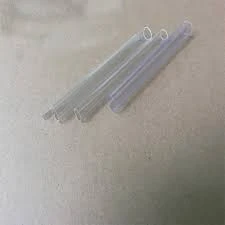Dec . 13, 2024 06:14 Back to list
Understanding the Benefits and Uses of PVC Water Pipes in Plumbing Systems
The Benefits and Applications of PVC Water Pipes
Polyvinyl chloride (PVC) is a widely used plastic that has revolutionized the plumbing industry, particularly when it comes to water transportation. PVC water pipes, known for their strength, durability, and cost-effectiveness, have become the material of choice for a variety of applications across both residential and commercial sectors.
Advantages of PVC Water Pipes
One of the most significant advantages of PVC water pipes is their resistance to corrosion. Unlike metal pipes that are susceptible to rust and corrosion over time, PVC pipes maintain their integrity, even when exposed to aggressive chemicals or varying temperatures. This resistance ensures a longer lifespan for the plumbing system, reducing the need for regular replacements.
Additionally, PVC pipes are lightweight compared to traditional materials such as copper or cast iron. This lightweight nature not only makes transportation and installation easier but also reduces labor costs. Less handling and easier installation can significantly shorten the time it takes for a project to be completed, making PVC a favored choice among construction professionals.
Another key benefit of PVC pipes is their smooth interior surface. This smoothness allows for efficient water flow, minimizing friction and thus reducing the energy required for water transportation. Moreover, the lack of crevices in the pipes hinders the growth of bacteria and other harmful organisms that can contaminate the water, making it a safer choice for potable water systems.
Versatility of PVC Pipes
pvc water pipe

PVC water pipes are not only advantageous but also incredibly versatile, making them suitable for a wide range of applications. They are commonly used in residential plumbing systems for everything from water supply lines to drainage systems. Their reliability and low maintenance requirements make them an attractive option for homeowners looking to install or upgrade their plumbing.
In addition to residential applications, PVC pipes are widely utilized in agricultural settings. Farmers often rely on PVC for irrigation systems due to their ability to withstand varying pressure levels and their resistance to sun exposure. This ensures that these irrigation systems can effectively transport water to crops without the risk of degradation.
Furthermore, PVC water pipes are used extensively in industrial applications. Factories and manufacturing plants often require efficient water supply systems for cooling and processing. The ability of PVC pipes to handle high flow rates while resisting chemicals makes them ideal for this purpose. Their durability ensures that they can withstand the rigors of industrial environments, further underscoring their versatility.
Environmental Considerations
While PVC pipes boast numerous benefits, it is also important to consider their environmental impact. PVC is a synthetic material, and its production can result in harmful emissions. However, many manufacturers are focusing on more sustainable practices, including recycling and using alternative materials. Recycled PVC pipes are now available, which can significantly reduce environmental impact while still providing the same benefits as new pipes.
Conclusion
In conclusion, PVC water pipes are an essential component of modern plumbing systems. Their resistance to corrosion, lightweight nature, smooth interior surface, and versatility make them a preferred choice among builders and homeowners alike. Whether in residential, agricultural, or industrial settings, PVC pipes provide a reliable and efficient means of transporting water. As manufacturers continue to improve sustainability practices, PVC pipes remain a practical solution for water transportation in the 21st century.
-
High-Quality PPR Pipes and Fittings Durable ERA PPR & PVC PPR Solutions
NewsJul.08,2025
-
Black HDPE Cutting Board - Durable, Non-Porous & Food Safe HDPE Plastic Cutting Board
NewsJul.08,2025
-
High-Quality CPVC Panel Durable HDPE & PVC Panels Supplier
NewsJul.08,2025
-
Double PE Welding Rod Supplier - High Strength, Durable & Versatile Welding Solutions
NewsJul.07,2025
-
High-Quality PVC-O Pipe Supplier Durable 75mm PVC Pipe & Connections Leading PVC Pipe Company
NewsJul.07,2025
-
HDPE Drainage Pipe Supplier – Durable & Corrosion-Resistant Solutions
NewsJul.06,2025

